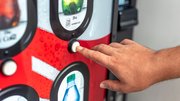Vending
Nutrimeals vends fresh food with app-based ordering
Partners Sam Hale and Grace Clark started a fresh food delivery service to make fresh food convenient before expanding into vending. COVID-19 motivated the development of an order app, which has proven popular with customers.
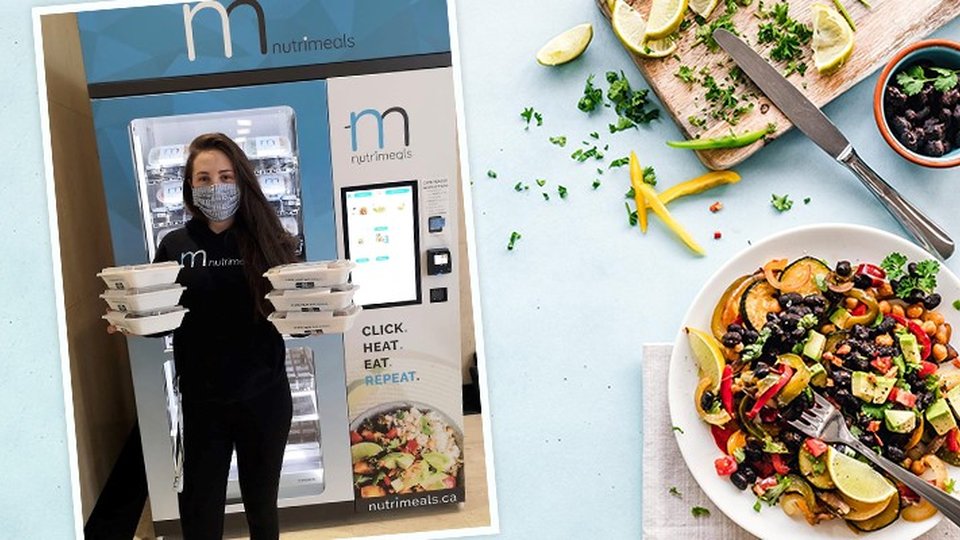
September 23, 2020 by Elliot Maras — Editor, Kiosk Marketplace & Vending Times
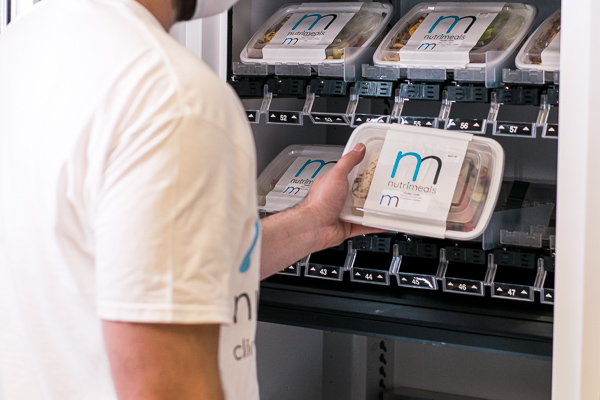 |
| A Nutrimeal employee stocks a machine with meals prepared in the company's commissary. |
The fresh food vending movement that began several years ago continues to pick up steam with new players entering this once-forlorn food vending segment and yet another technology savvy player entering the fray.
While this website has reported on several companies that have introduced machines offering fresh food in recent years, Calgary, Canada-based Nutrimeals leverages a unique twist: app-based customer ordering.
The app, which allows customers to browse menus and make purchases on a smartphone, marks a foodservice innovation wrought by COVID-19.
This convenience takes on special importance during the coronavirus pandemic as it allows people to place and retrieve orders without touching the machine.
How it works
"The app will show you the inventory," Sam Hale, who launched the business with a partner while studying finance at the University of Lethbridge in Lethbridge, Alberta, told Vending Times. "You can buy the meals and reserve them on your smartphone. Then they scan their barcode which the app generates for them. And that is what allows them to pick up their meals without paying at the machine."
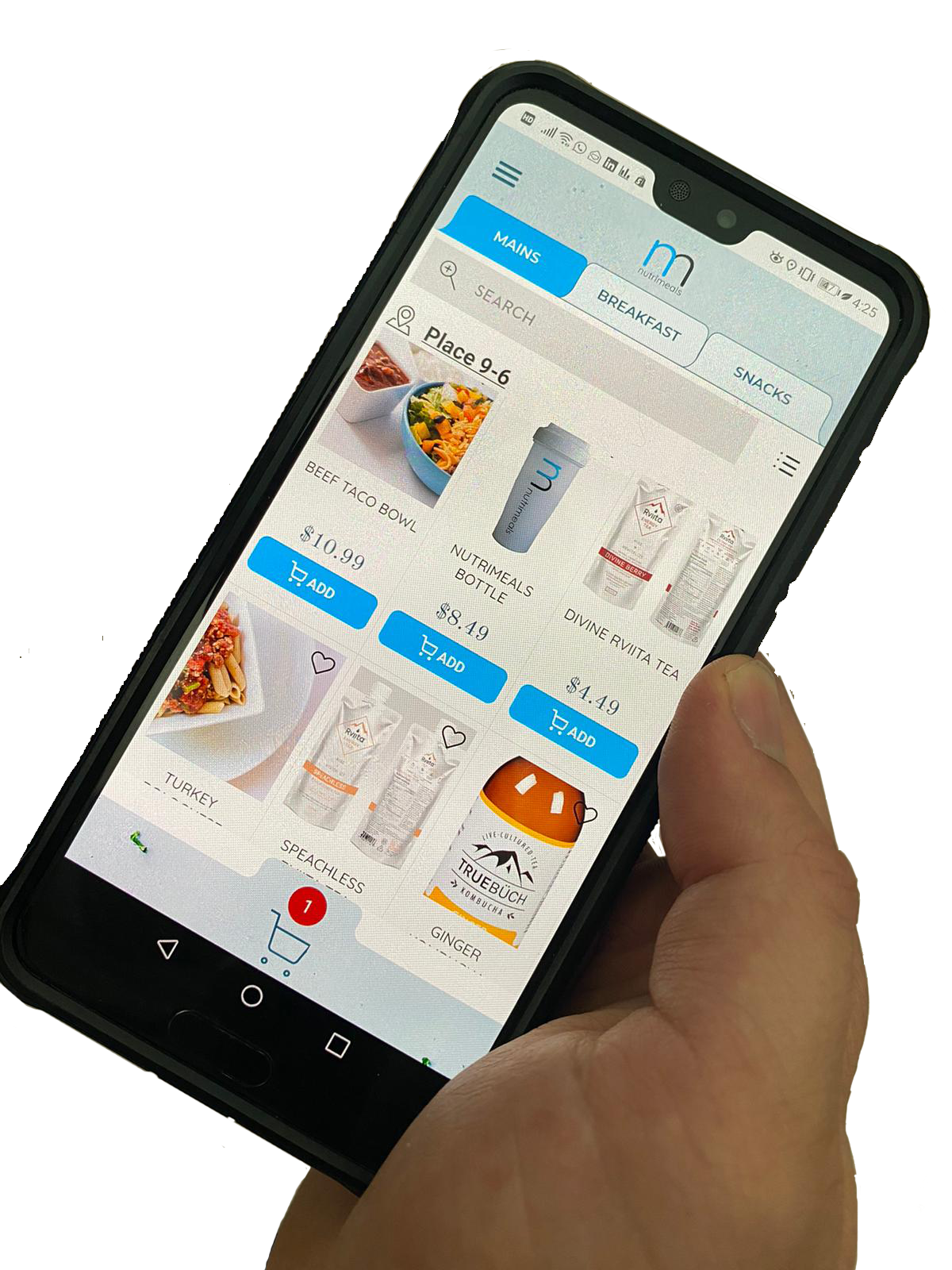 |
| Customers can browse the menu and place orders using the app. |
"It will vend your items for you without touching the kiosk," he said. "Being able to use the machine pay-per-use and then touching it is very common, however, now we have an app that connects to it, and you can order straight from your smartphone."
The machine — offering meals prepared in a commissary kitchen — launched this past January in a pair of office buildings in Calgary, featuring adjustable columns, an elevator delivery mechanism and cashless payments.
Hale and his partner, Grace Clark, a fellow finance student, launched the business as a virtual restaurant in 2017 with the intention of expanding into vending once the food delivery service gained a following.
Meeting a customer need
"We noticed there was never a convenient option for consumers," Hale said thinking back to his student days. "We wanted to do a business model that was convenient for the customers."
Clark became a full-time employee upon graduation while Hale worked in financial reporting for an agriculture company, helping out in his spare time to get the business started. He left his corporate job this past February to join his partner full time.
They prepare the food — vegan options, as well as pork, chicken, turkey and beef — in a rented 2,000-square-foot commercial kitchen in downtown Calgary. The three-week rotating menu produces 12 different meal items at a time for main courses, as well as eight breakfast options.
"We can cater to a lot of different palates and dietary restrictions," he said.
They deliver the food in a refrigerated vehicle, using couriers with ice packs as needed.
Expansion into vending
By early 2018, they had a following (Hale claimed nearly half of the clients become repeat customers) and the capital needed to begin stage two of their business plan — the vending service. Having studied for a while in Japan, Hale was aware of the potential vending offered.
"We wanted to create a way to add to our model with another retail platform," he said.
He selected a machine capable of integrating an ordering app. He did not share the machine manufacturer he is working with since the matter is still under consideration.
Depending on the column configuration, the machine can hold up to 75 meals.
The machine automatically disables the vend function if the temperature, which can be monitored remotely, reaches a certain threshold.
It took about a year to win their first two vending locations — lobbies in corporate office buildings that do not have cafeterias.
They stock the machines every three days, donating all unsold product to a local charity. The average meal is 10 CN ($7) while beverages are 4.50 CN ($3.40).
The offerings are spilt between meals and beverages, including locally produced, bottled, cold brew coffee.
COVID-19 strikes
The vending pilot was going well until COVID-19 hit. Vending sales fell by half, while delivery sales increased slightly.
In response, Hale created a customer app to make ordering easy.
"We don't have to rely so much on foot traffic; we can actually bring people to the kiosks themselves," he said. "I can see corporate customers going toward a contactless vending option."
The company has been expanding its social media advertising to build visibility, including paid-per-click posts.
When the customer signs up to get the app, they are given an option to give their birth date. This gives the company some idea about the ages of its customers.
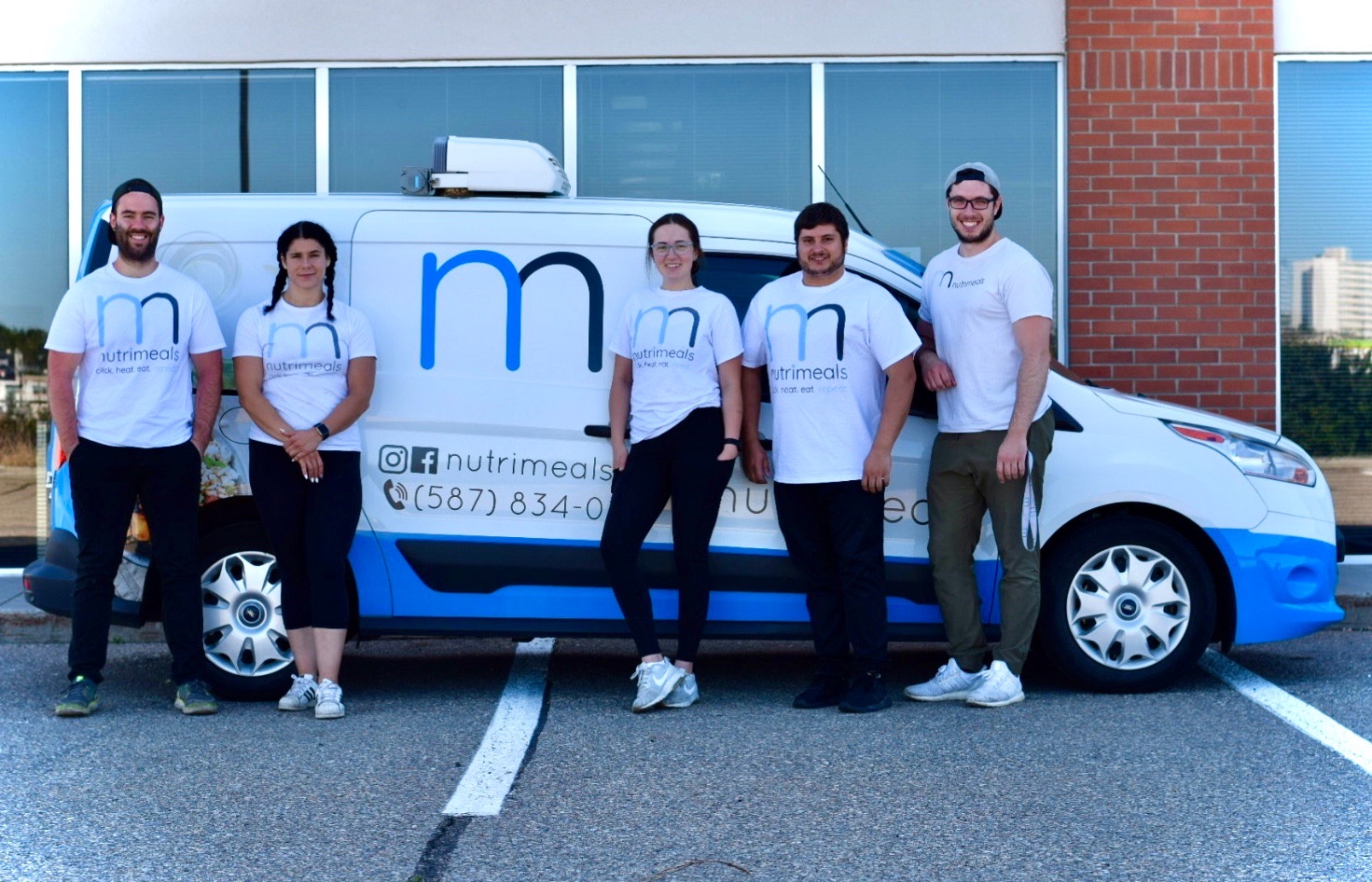 |
| Standing in front of the delivery truck, the team includes, at left: Jake Osmak, Shelby Kennedy-Gonclavs, Grace Clark, John Christos and Sam Hale. |
Hale is presently working on a subscription model for the delivery service.
He declined to provide a specific number, but he said the company has thousands of customers, is operating at a profit and is reinvesting all profits into the operations.
Dual growth focus
Hale believes both sides of the business have strong potential, and hopes to expand to hotels, multifamily buildings, schools and airports. He plans to eventually expand from Canada to the U.S.
The company employs two full-time people and one part-time employee in addition to the two partners.
"I'm surprised no one has done an app before to pre-order," he said, referring to a consumer app. "With the technology that we have today, I think kiosk (software) manufacturers can utilize vending more."
For an update on how the coronavirus pandemic is affecting convenience services, click here.
Photos courtesy of Nutrimeals.
About Elliot Maras
Elliot Maras is the editor of Kiosk Marketplace and Vending Times. He brings three decades covering unattended retail and commercial foodservice.
 ChatGPT
ChatGPT Grok
Grok Perplexity
Perplexity Claude
Claude



